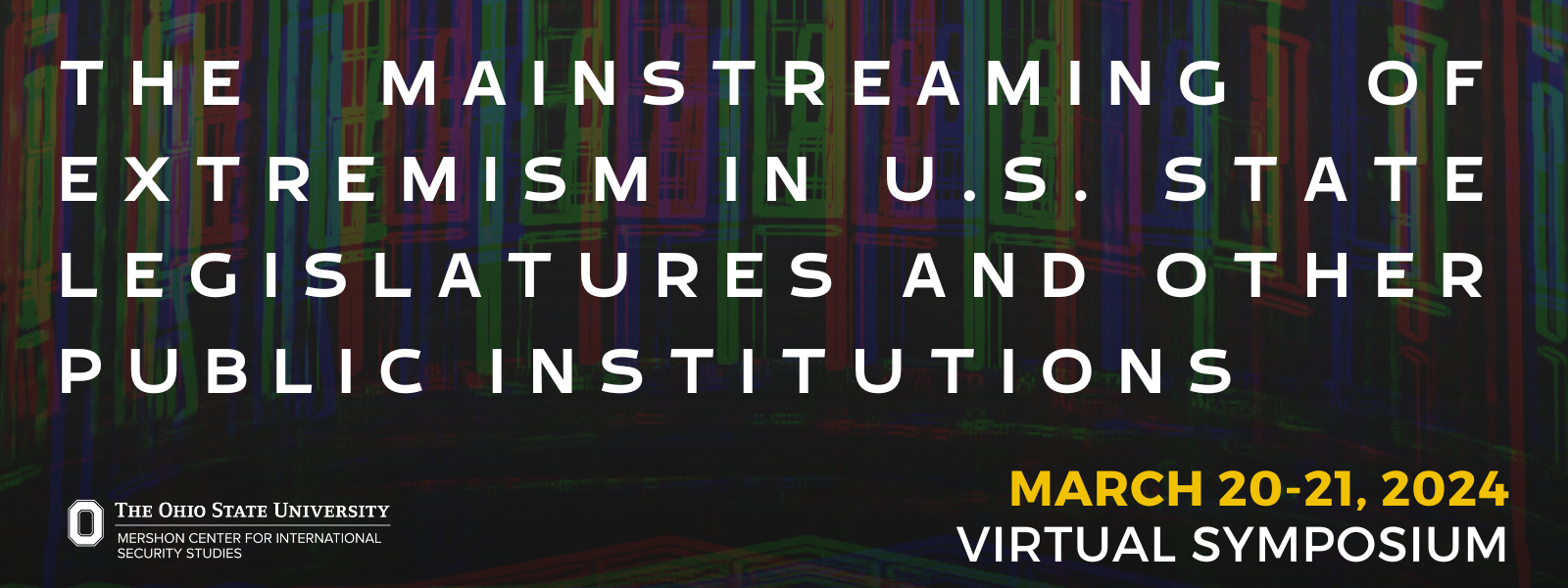
While much scholarly attention has been on how far-right extremism has influenced U.S. national politics, less studied, and perhaps more ominous, is the equivocal degree to which far-right extremists have entered and reshaped state and local governments, as well as other public institutions. We see harmful legislation being passed in Statehouses, district lines are being redrawn to edge out competitors, school boards are imposing distorted curricula, and libraries are being forced to remove books that promote diversity, equity, and inclusion. To effectively challenge the spread of far-right extremism, we need to first understand where and how the various movements within the far-right agenda work. The Mershon Center for International Security Studies at The Ohio State University is organizing a second symposium on far-right extremism, which will include thirteen presentations of original research that is relevant to how extremist ideologies have influenced public institutions. Among the topics, we will learn about how Ohio’s political landscape has been influenced by Christian strongholds, how recent efforts to censor public education echo previous attempts by The Daughters of the Confederacy more than a century ago, how street mobilization about COVID-19 protections and against Critical Race Theory relate to threats against local officials and meta-narratives on social and mass media.
Speakers
Rania Badran, The Ohio State University
Mia Bloom, Georgia State University
Laura Dugan, The Ohio State University
Daren Fisher, Hampton University
Carolyn Gallaher, American University
Marquianna Griffin, The Ohio State University
Priya Dixit, Virginia Tech University
Amy Fairchild, Syracuse University
Dana Haynie, The Ohio State University
Gunther Jikeli, Indiana University
Roudabeh Kishi, Princeton University
Hope Lafreniere, University of Massachusetts Lowell
Andrew R. Mackey, Creighton University
Sophia Moskakenko, Georgia State University
Jeffery Patterson, Texas Tech University
Dakota Rudesill, The Ohio State University
Nisha Saranat, The Ohio State University
Anneliese Schenk-Day, The Ohio State University
Parvati Singh, The Ohio State University
Kamesha Spate, University of Pittsburgh
Hampton Stall, Princeton University
Jacob Ware, Georgetown University & Council on Foreign Relations
Anneliese Ward, The Ohio State University
Jack Wippell, The Ohio State University
Mo Woods, The Ohio State University
Selin Yanik Koc, University of Arizona
